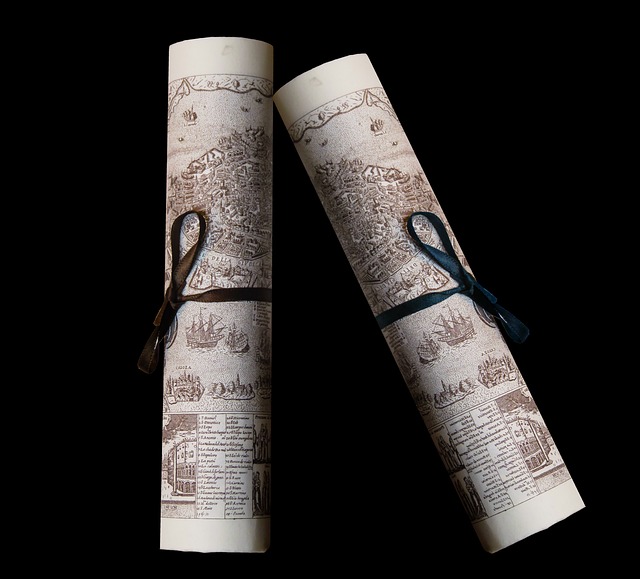Accurate translation of UK cookbooks and culinary guides requires cultural sensitivity and linguistic expertise. Professional services employ linguists with deep culinary knowledge, preserving historical context, regional customs, and authentic taste. They bridge cultural gaps, adapt recipes for local ingredients and techniques, and maintain quality through rigorous QA processes. Selecting qualified translators with food industry experience is crucial to avoid misleading readers. Legal considerations, including copyright laws, must be navigated carefully. Effective collaboration relies on clear communication, ensuring accurate representation of culinary visions globally. UK Cookbooks and Culinary Guides Translation Services play a vital role in making these resources accessible and authentic for worldwide audiences.
In the vibrant world of culinary exploration, accurate translations are essential for connecting diverse cuisines. This article guides you through the intricacies of ensuring quality in UK cookbooks and culinary guides translation services. From understanding cultural nuances to selecting the right translator, we cover it all. Learn about the importance of precise food terminology, adapting recipes for global palates, and robust quality assurance processes. Discover legal considerations and effective communication strategies for seamless translations that capture the essence of each cuisine.
- Understanding Cultural Nuances in Culinary Translation
- The Importance of Accurate Food Terminology
- Adapting Recipes for Different Cuisines
- Quality Assurance Processes for Cookbooks
- Choosing the Right Translator for Your Cookbook Project
- Legal and Copyright Considerations in Culinary Translation
- Effective Communication with Your Translation Team
Understanding Cultural Nuances in Culinary Translation

When translating UK cookbooks or culinary guides, understanding cultural nuances is paramount. Food is deeply intertwined with cultural identity, so a literal translation often misses the mark. For instance, a dish’s name might carry historical significance or be tied to specific regional customs. Translators must capture these subtle meanings while ensuring accuracy.
Consider the impact of language on taste and perception. A UK-specific term for a particular cooking technique or ingredient may not translate well into another language, potentially altering the reader’s experience. Professional translation services specializing in cookbooks and culinary guides employ linguists who not only master the target language but also have a passion for cuisine, enabling them to bridge cultural gaps and create truly authentic culinary content.
The Importance of Accurate Food Terminology

Accurate food terminology is paramount in culinary translations, especially for UK cookbooks and culinary guides. The subtle nuances and precise descriptions of ingredients, cooking techniques, and dishes must be conveyed accurately to maintain the integrity of the original content. Mistranslations can lead to confusion among readers, affecting their ability to recreate recipes or understand cultural culinary practices.
Professional translation services that specialize in the food industry are crucial for achieving this level of accuracy. They employ linguists with culinary expertise who not only understand the technical terms but also grasp the cultural context. By carefully matching local ingredients and cooking methods with those described in the original text, these services ensure that UK cookbooks and guides remain reliable resources for culinary enthusiasts and professionals alike.
Adapting Recipes for Different Cuisines

When translating recipes for different cuisines, it’s essential to consider more than just words. Cultural nuances play a significant role in cooking; what works in one kitchen might not translate well to another. UK cookbook and culinary guide translation services excel at this by adapting recipes not just linguistically but also culturally. They understand that ingredients, cooking techniques, and even meal times can vary from one region to the next.
For instance, a simple dish like pasta in Italy might require different herbs or spices when translated for a French cookbook, reflecting regional preferences. Translators must also account for variations in equipment; what’s considered standard in one kitchen might not be in another. This meticulous adaptation ensures that recipes remain authentic and enjoyable, bridging the gap between culinary traditions while maintaining quality.
Quality Assurance Processes for Cookbooks

When it comes to UK cookbooks and culinary guides translation services, ensuring quality is paramount. Reputable translation agencies employ rigorous Quality Assurance (QA) processes to guarantee accuracy and authenticity in translations. This involves several steps. First, a team of experts reviews the source content for cultural nuances, technical terms, and ingredient names. They then match these with equivalent terms in the target language, taking into account regional variations and culinary practices.
Next, professional translators conduct a thorough translation, focusing on conveying not just words but also the essence of each recipe. After translation, an in-country native speaker reviewer checks for grammatical correctness, fluency, and cultural appropriateness. This is followed by a final QA check by the agency’s project manager, ensuring all recipes are not only accurate but also appealing to the target audience.
Choosing the Right Translator for Your Cookbook Project

When it comes to translating cookbooks or culinary guides, precision is key. The last thing you want is for your UK cookbook project to mislead readers with inaccurate descriptions or incorrect ingredient substitutions. Therefore, choosing the right translator is paramount. Look for translators who are not just bilingual but also have a deep understanding of both culinary cultures. A professional translator who has experience in the food industry and knowledge of various cooking techniques will ensure that flavors, methods, and textures translate seamlessly from one language to another.
Additionally, consider seeking out translators who specialize in UK cookbooks and culinary guides translation services. They should be adept at navigating regional differences in ingredients and cooking styles, ensuring your translated content resonates with a British audience. This specialized knowledge can elevate your cookbook’s quality and make it more appealing to its target market.
Legal and Copyright Considerations in Culinary Translation

When translating culinary content, especially for UK cookbooks and culinary guides, it’s crucial to navigate legal and copyright considerations. These include ensuring that recipes and textual descriptions remain faithful to the original while adhering to international copyright laws. Translation services should be aware of any proprietary information or unique branding associated with the cookbook, as these elements require careful handling to avoid infringement.
In the UK, the Copyright, Designs and Patents Act 1988 provides legal protection for original literary works, including cookbooks. Translators must respect the author’s rights and secure necessary permissions before adapting or distributing translated content. This includes understanding fair use doctrines and seeking consent from copyright holders to ensure that the final translation not only maintains quality but also stays within legal boundaries, especially when it comes to UK cookbooks and culinary guides.
Effective Communication with Your Translation Team

Effective communication is key when collaborating with a translation team for UK cookbooks and culinary guides. Clear, consistent, and detailed briefings are essential to ensure your vision is accurately translated into different languages. Provide specific guidelines about the target audience, tone, and style preferences to help translators tailor their work accordingly. Regular check-ins allow you to offer feedback, clarify any ambiguities, and make necessary adjustments in real time.
Encourage open dialogue where team members feel comfortable asking questions and seeking clarifications. This collaborative approach fosters a deeper understanding of your culinary content, resulting in more accurate and culturally relevant translations for global audiences. Remember, successful translation goes beyond words; it’s about capturing the essence of a dish and conveying it through language.
Ensuring quality in culinary translations is paramount for creating authentic, engaging UK cookbooks and guides that resonate globally. By understanding cultural nuances, employing precise food terminology, adapting recipes sensitively, and implementing robust quality assurance processes, translators can deliver exceptional results. Choosing the right translator and considering legal aspects further safeguard the integrity of your content. Effective communication with the translation team is key to achieving a successful, culturally sensitive culinary work that delights readers worldwide.
